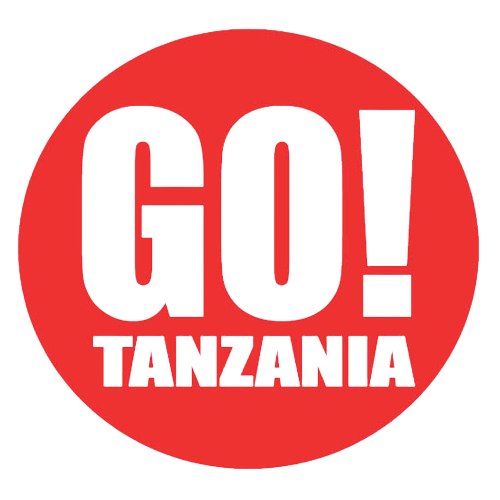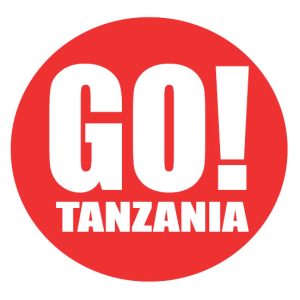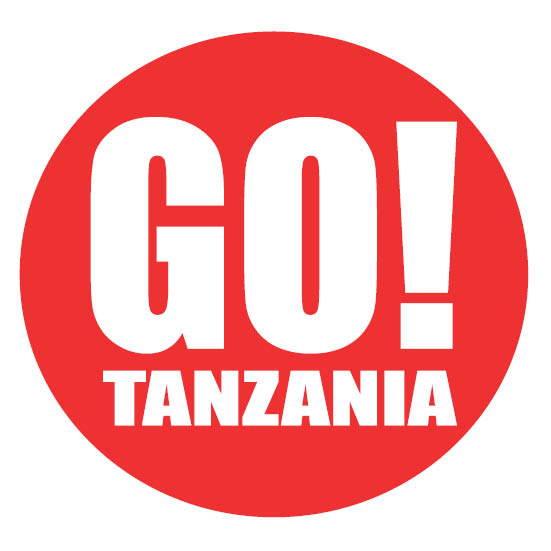By distributing power among competing factions within CCM without granting dominance to any of them, Samia facilitates an environment where she can effectively retain control over the party.
After almost two months of whispered rumours and fervent speculation, the dust has finally settled on the leadership of Tanzania’s ruling party, Chama cha Mapinduzi (CCM). The announcement of Emmanuel John Nchimbi as the party’s new secretary-general comes as no surprise to those who have closely followed the party’s trajectory.
A seasoned party insider, Nchimbi has meticulously navigated the ranks of CCM since his youth, his name synonymous with unwavering loyalty and astute political acumen.
With Nchimbi at the helm, the question remains: What direction will CCM take in the face of a rapidly evolving political landscape?
Will the new secretary-general adhere to the tried-and-true path laid by his predecessors, or will he chart a bold new course for the party’s future? Only time will tell, but one thing is certain: With Nchimbi’s steady hand on the tiller, CCM is poised to navigate the coming tides with unwavering resolve.
READ MORE: Tanzania’s CCM Picks Emmanuel Nchimbi As Its Twelve Secretary-General
Who’s Nchimbi?

But more on this later; let’s first explore a bit about Dr Nchimbi’s life. Born on December 24, 1971, in Mbeya, Nchimbi’s father, John Nchimbi, concluded his service as a law enforcement officer with the rank of Assistant Commissioner of Police. At the time of retiring, he was serving as the Mtwara regional police commander.
A stalwart within the political arena, John Nchimbi was a member of the CCM National Executive Council (NEC) through his affiliation with the armed forces. Furthermore, he served as a regional secretary-general for CCM. He withdrew from politics after the advent of multipartism, which barred civil servants from political participation.
Emmanuel Nchimbi began his primary education in Dar es Salaam at Oysterbay Primary School from 1980 to 1986. He graduated from Uru Secondary School from 1987 to 1989 before transferring to Sangu Secondary School, where he completed Form IV in 1989-1990.
Nchimbi pursued Form V and VI studies at Forest Hill Secondary School in Mbeya from 1991 to 1993. He then enrolled at the Institute of Development Management (IDM) Mzumbe in Morogoro, graduating with an Advanced Diploma in Public Administration from 1994 to 1997.
Upon completing his studies at IDM, he was elected as a Member of the CCM’s NEC and in the following year, 1998, he was elected as the Chairman of the Youth League of CCM (UVCCM).
READ MORE: Chongolo’s Resignation and Samia’s Resolve to Consolidate Power Within CCM
Nchimbi worked for the National Environmental Management Council (NEMC) from 1998 to 2003. Between 2001 and 2003, he started to pursue his Master’s degree in Business Administration at Mzumbe University, specialising in banking and finance.
In 2003, he was appointed as the District Commissioner of Bunda (2003-2005), and in 2008-2011, he completed his doctoral studies (PhD) at Mzumbe University.
Political journey
Nchimbi returned to his hometown, Songea Urban, to embark on his parliamentary aspirations while he was still leading UVCCM. In 2005, he entered the electoral arena and faced off against CHADEMA’s Edson Mbogoro, his main opponent. Nchimbi received substantial support from the extensive CCM network, securing victory with 67.6 per cent against Mbogoro’s 30.5 per cent.
Immediately upon becoming a Member of Parliament, Jakaya Kikwete, then president, appointed him as the Deputy Minister of Information, Culture, and Sports in January 2006. He held this position until October 2006, when he was transferred to the Ministry of Labour, Employment, and Youth as Deputy Minister until February 2008.
Subsequently, he moved to the Ministry of Defense and National Service, where he also held the position of Deputy Minister until November 2010. In the general election 2010, Nchimbi once again contested the Songea Urban constituency.
READ MORE: Making Sense of Tanzania’s Politics Towards 2025 As Election Fever Grows
Despite his party securing over 90 per cent of villages, neighbourhoods, and streets in 2009, the 2010 campaign proved challenging. Nchimbi faced Mbogoro again and secured victory for the second time, though with a narrower margin than in 2005. In that election, he garnered 59.9 per cent compared to Mbogoro’s 37.48 per cent.
Dr Nchimbi’s ascent continued, with Kikwete appointing him as the Minister of Information, Culture, and Sports. He held this position until May 2012, when he was reassigned to the Ministry of Home Affairs before resigning in December 2013.
During the 2015 CCM presidential primaries, Nchimbi, alongside Sophia Simba and Adam Kimbisa, notably orchestrated a demonstration in response to excluding Edward Lowassa’s name from the proceedings. Due to this initiative, Sophia Simba faced expulsion from the party in 2017, while Nchimbi and Adam Kimbisa received a stern warning.
In 2017, President John Magufuli appointed Nchimbi as Tanzania’s ambassador to Brazil. This decision was perceived as a strategic manoeuvre to distance Nchimbi from domestic politics, given his close association with Mr Lowassa.
In 2022, President Samia Suluhu Hassan reassigned Dr Nchimbi from his ambassadorial role in Brazil to undertake the responsibilities of Tanzania’s ambassador to Egypt.
READ MORE: Times Have Changed, And So Must CCM
He held this position until August 2023, when President Samia designated a successor for the diplomatic post in Egypt without explicitly detailing Nchimbi’s subsequent role.
Political stratagem
I have consistently held that President Samia does not align herself with a distinct faction within CCM. A cursory examination of her ministerial cabinet swiftly reveals that numerous members have affiliations with Magufuli or Kikwete. Notably, no cabinet member one could assert has undergone mentorship under Samia’s guidance.
This underscores the narrative that President Samia has not exhibited an overtly ambitious demeanour throughout her political trajectory. In the past, she openly shared her astonishment at being chosen as the running mate in 2015 when Kikwete informed her of the decision.
Even during her tenure as Vice President, it is evident that she could have been a prominent candidate for succeeding the late Magufuli in 2025. Consequently, Samia has consistently epitomised a neutral political stance for these reasons, refraining from actively seeking to establish or align herself with any particular faction.
Nevertheless, the absence of a discernible faction under Samia’s leadership implies that she has had to navigate various factions within the party, each vying for power, influence, and positioning to determine her successor in 2030.
READ MORE: ‘Unprecedented’: Reconciliation Drive Pays Off As Samia Graces BAWACHA’s Women’s Day Event
The strategic appointment of Dr Nchimbi to the position of secretary-general introduces a semblance of equilibrium in the power dynamics.
This configuration entails CCM’s vice chairperson (Tanzania Mainland), Abdulrahman Kinana, a close confidant of former President Kikwete; Nchimbi, closely associated with Lowassa, former Prime Minister; and Paul Makonda, a former associate of the late Magufuli, occupying prominent positions at the apex of the party hierarchy.
By distributing power among these three factions without granting dominance to any of them, Samia facilitates an environment where she can effectively retain control over the party.
Nchimbi’s work ahead
Nchimbi, being a seasoned political operative, is adept at navigating the intricate dynamics of CCM politics and is poised to emerge as a formidable influence against opposition parties.
Notably, he can be regarded as the final chairperson of UVCCM during a period when the youth league held substantial sway in shaping the party’s trajectory. His ability to strategically reposition himself following his involvement in a quasi-coup during the 2015 CCM primaries underscores his proficiency in achieving political objectives.
READ MORE: Stakeholders Gather in Dar to Reflect on State of Democracy Ahead of Civic, General Elections
Nchimbi’s demonstrated capability to accomplish tasks effectively positions him as an invaluable asset to the party, particularly in the upcoming 2024 local government and 2025 general elections.
Nchimbi is recognised for adorning a genial countenance even as he firmly grasps an iron rod in his hand. Renowned for his unyielding and determined approach to political endeavours, he is acknowledged for his unwavering and unforgiving demeanour in the realm of politics.
Nchimbi’s formidable reputation suggests he can assert authority and maintain strict adherence among party officials. As the nation approaches elections, the party necessitated a figure of his stature—someone capable of commanding respect and compelling decisive action.
Yet, it prompts another inquiry: how might the designation of Nchimbi shape future presidential appointments? He will assume a pivotal advisory role for President Samia, influencing the selection of individuals for crucial positions to advance the party’s objectives over the next two years.
I foresee substantial alterations within the cabinet, among regional and district commissioners, throughout the civil service, and within the party until June. This transformation will likely introduce fresh faces and witness the resurgence of former figures, particularly within the sphere associated with Mr Lowassa.
Authored by Thomas Joel Kibwana, an international relations and business development expert. He can be reached at thomasjkibwana@gmail.com or on X (Twitter) as @thomasjkibwana.
The Chanzo



